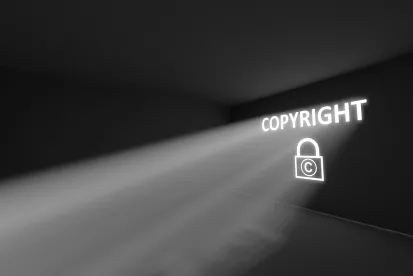No matter how hard you try, you can’t avoid a few basic principles: death, taxes and complying with the law. For the most part, they all catch up to you in the end. One instance of this can be found in social media posts and on websites, based on the ease with which a quick and easy right-click, copy and paste of an image can result in a copyright infringement claim, even if you are a celebrity and you are the focus of the photo – just ask LeBron James, Amy Schumer or Jennifer Lopez.
Under U.S. law, the Copyright Act grants the creator of the work the right to reproduce, make copies, distribute, display or perform original works of authorship, including photographs, regardless of the subject matter. The law is designed to protect the content creator’s rights in the work, including the ability to commercialize or benefit from that work and to prevent unauthorized use which may diminish some or all of those rights. This principle applies even for the subject of a photograph. Many celebrities, such as LeBron James, Amy Schumer and Jennifer Lopez have been sued for copyright infringement for this conduct. Under the law, the unauthorized use of a copyrighted photograph is not permissible, even for social media posts or other arguably non-commercial uses. While celebrities may have some rights in their image or likeness, such as the right of publicity or right of privacy, this doesn’t automatically mean they can share photographs or videos taken of themselves taken by others without permission. For example, LeBron James was sued for posting to Facebook a well-known photographer’s picture of LeBron playing a game for the Lakers without the photographer’s permission. Jennifer Lopez was sued for posting a picture of herself without proper permission or authorization on Instagram with damages claimed at over $150,000 – not the first time she has been sued for such conduct. Amy Schumer was sued for $300,000 for posting photos of herself and her son on Instagram. The end result is the same – even though it’s possible to right-click, copy and paste third party materials, you may end up in hot water if you don’t have permission.
What Does this Mean for You or Your Business?
As a general rule, copyrighted content should not be used without conducting a proper copyright clearance analysis – this applies to photographs, songs, designs, logos or any other material protected under the Copyright Act. It also applies to individuals and businesses alike. Copyright clearance is an important part of any advertising activity, marketing activity or the use or sharing of third party materials and should not be overlooked.
Before using any third party materials, the following questions should be asked: Is the work in the public domain? Do you need permission to use the work? Or can it be used under a defense to infringement like “fair use”. Note, as in the cases above, there is no general rule that non-commercial use is permissible – even in the case of social media posts featuring a party’s own image. This may also apply where a photographer takes pictures of you or your staff, or a company building. While it is true the Copyright Act permits some unauthorized use of copyrighted materials under certain circumstances, including by claiming “fair use”, this is an exception and not the rule. The fair use doctrine provides an exception to copyright infringement based on the review of the following four factors and their applicability: i) purpose and character of the use, ii) nature of the copyrighted work, iii) amount and substantiality of the portion used in relation to the copyrighted work as a whole and iv) effect of the use upon the potential market for or value of the copyrighted work.
As LeBron, Jennifer, Amy and countless others would tell you, it is perhaps better to ask for permission than to beg for forgiveness when dealing with copyright rights and infringement claims. As a general rule, it is strongly recommended that you consult with an attorney when considering the use of third party copyrighted materials, whether in a commercial or non-commercial setting, as an individual or as part of a corporate advertising strategy or social media campaign, to determine if certain permissions must be obtained prior to use or whether fair use may apply.




 />i
/>i

